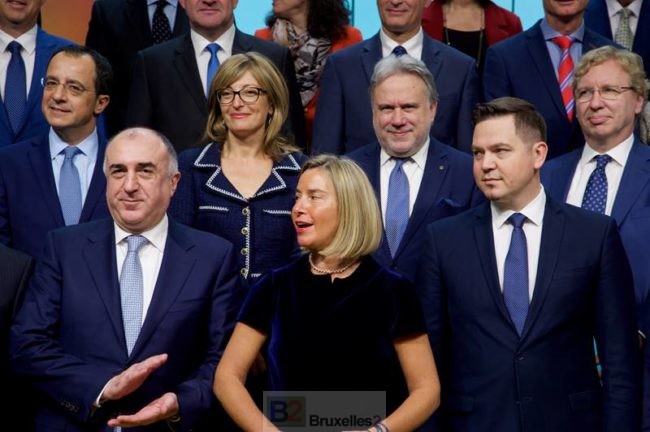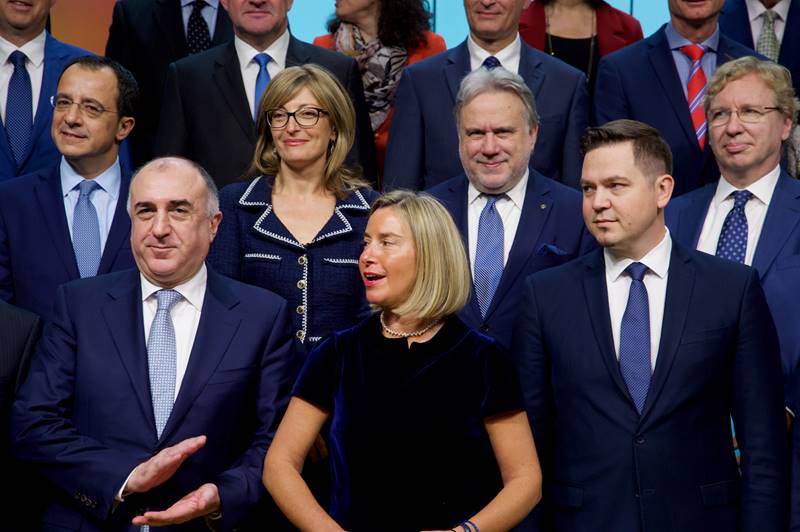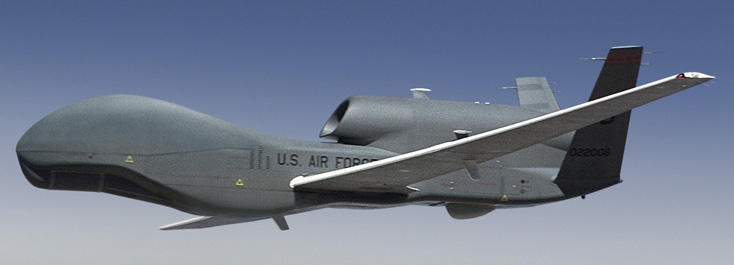Can the high rep system bug be fixed?
(B2) The reform called for by the Lisbon Treaty aimed to develop a European foreign policy and raise the voice of Europe by merging the posts of Vice-President of the Commission and High Representative. Ten years later, the result is mixed

The hope of efficiency
In the 2000s, it was believed that by merging the various functions — vice-president of the European Commission, president of the Foreign Affairs Council, observer member of the European Council, head of the European diplomatic service and of the European defense — we put an end to institutional conflicts. We would give both strength and resources (human, financial) to the head of European diplomacy. The ambition was great... But the Mogherini experience, after the Ashton experience, demonstrated it. Between theory and reality, there is a step that the new post of high representative has not managed to cross.
Dynamism is not enough
The former Italian Foreign Minister did not lack dynamism or will. Present on all crisis fronts, it has been everywhere (in the European Parliament, in the European Council, in the Commission, in the Council of Ministers), perhaps a little too much, skimming over the files. To coordinate external action, it has set up a group of commissioners in charge of these files. She reorganized the work in the Council of Ministers to leave room for the unexpected, such as current affairs debates. She insisted on having more debate between ministers and less time wasted on writing bits of concluding paragraphs. The effort is noticeable. But nothing has done... Success is not really there. Whatever personality it is, there's a system bug. (I already spoke in 2011 of a design flaw, we can only go in this direction and drive the point home).
A system bug on several levels
The job's triple agenda requires being superhuman
Even a woman, perfectly organized and dynamic, cannot suffice. The choice is either to concentrate on two or three files and neglect the others (Ashton tactic), or to go through all the files, one after the other, and exhaust yourself with the task without always conclusive results ( Mogherini tactics). You can try all the tactics, there is none that seems really effective. A natural person cannot be present on Sunday in Tehran to negotiate an agreement, on Monday to preside over the Council of Foreign Ministers, on Tuesday at the European Parliament to explain the positions taken and answer questions from MEPs, on Wednesday at the European Commission to decide on a business merger case, on Thursday in Addis Ababa to discuss with the African Union, on Friday in a European capital to prepare for the next meeting. It's not human. This is not serious.
The five-legged sheep does not exist
This combination of functions also has very concrete political, even psychological, implications which disturb the day-to-day functioning of a high representative. Demonstrate both dynamism and audacity to take initiatives (when you are at the Commission). Preside over the debates as neutrally as possible (when on the Board). Represent all the Member States abroad in a dynamic way by having sufficient media interpersonal skills, while keeping a profile low enough to allow everyone to have their position. Have the tactical sense to negotiate with the 'Greats' of this world. But speak 'loud and strong', to affirm the European voice. All of these responsibilities are somewhat... contradictory.
A double resistance
The creation of a superman or superwoman post of High Representative has never been fully accepted either by the Member States or by the European Commission.
Resistance from Member States
Even if they officially declare their desire for a common foreign policy, the Member States have their own way. The large countries — in particular France or the United Kingdom — have various instruments at their disposal (the United Nations Security Council, numerous embassies) which relegate the common policy to the background. Common policy that they therefore use when they need it. Very often, they have directly taken charge of the negotiation of certain international crises (Iranian nuclear, Russia-Ukraine, etc.). Several countries do not hesitate to trample on European positions as soon as their national interest is at stake, even on previously consensual issues (on Jerusalem, human rights, dialogue with Africa).
The scientific mining of the European Commission
The European institutions are playing the same game. The European Commission is thus carrying out a continuous policy of 'mining'. Basically, the institution has always regretted having had to cede some of its external assets, such as DG Relex (Directorate General for External Relations) and its EU delegations to a new structure that came out of nowhere (the EEAS) . Since then, she has not stopped trying to recover this lost skill. Thus, both within DG DevCo (development) and DG Near (enlargement - neighborhood), there are always 'desks' by geographical area. They largely duplicate those of the EEAS instead of relying on them as was the objective.
A double hierarchy still present
In the delegations of the European Union dispersed in 140 countries, the 'officials' of the Commission often want to display their particularism in relation to the 'diplomats' from the Member States or from European diplomacy. With the creation of the European Defense Fund, the Commission also recovers a sacred competence and serious expertise which was previously the responsibility of the 'monopoly' of the European External Action Service.
A neglected position
The result is obvious. In the race for European posts, today the head of European diplomacy is no longer really desired either by European personalities or by the Member States. While several personalities have expressed, more or less publicly, their candidacy for the head of the European Commission and the European Council, the chair of High Representative remains surprisingly empty. A situation that contrasts sharply with the situation five years ago (1). The position is no longer intended as a consolation prize for losers in other positions (European Commission, European Council or European Parliament), for example for Frans Timmermans. Only one candidacy has been announced, that of the Slovak Šefčovič, and again (again) it is a stopgap. No country really claims this position, aware that it is a very demanding position, to 'shit' and without real power.
Some lessons for the future
We are not going to review the Treaty today, but we can adjust it to resolve certain hiatuses. Tomorrow, the European Parliament, like the Member States, will not be able to do without a deeper reflection on the post of High Representative, in order to resize it, support it and multiply it to make it fully effective.
A principle of reality
On the philosophical level, we will have to mourn, at least for a moment, a single foreign policy, or even one common to all the Member States. It is not a question of diminishing the ambition: that can be the medium or long term objective. But you also have to be realistic. The foreign policy of the European Union is a complementary policy to that carried out by the Member States and the latter remains under their sovereignty. Any attempt to pursue a policy of 'force' could be condemned to be marginalized. The plan to have decisions by qualified majority in matters of defense and foreign policy could very quickly lead to a counterproductive effect: the States placed in the minority will have no reluctance to override the non-consensual decision (2).
A defined job profile
In the choice of the future high representative, it will be necessary to define a real job profile. And not simply coming to fill in a box at the end of the process of appointing European leaders, the High Representative then having to fulfill the characteristics that the other holders of the Top Chef did not fulfill. In other words, do we want as High Representative a super diplomat who adjusts the positions of the Member States behind the scenes — a bit like Herman Van Rompuy did while presiding over the European Council — and goes to negotiate with the leaders of this world name of the European Union? Or do we want a 'head of European diplomacy' capable of commanding and asserting a European position? (3)
Have a vertebrate organization
In terms of organization, it will be necessary to resolve a hiatus in the accumulation of functions that is impossible to maintain. In practical terms, it would be necessary for a moment to examine the possibility of providing the High Representative with deputies, with a political profile. For example, for “security” cases. Today, the Treaty is silent on this point. It's not that he forbids it, he's silent. This leaves room for manoeuvre. We can also simply consider that the Commissioner for Neighborhood has authority over the entire Balkan area, including to lead (on behalf of the High Representative) the dialogue with Belgrade-Pristina, or that the Commissioner for Development Africa also has competence for all African Union relations. This somewhat simplifies the muddled image that the European Union gives to the outside world, with several 'leaders'.
(Nicolas Gros-Verheyde)
- Five years ago, around this time, there were at least five candidates to the point that we headlined at the time'all candidates for the post of High Representative?*'. Today... it would be difficult! Candidates for the post of High Representative are not jostling, we wrote in February. It was only at the cost of incredible efforts that we had identified in February Six possible and possible names?)*.
- A transgression that is all the easier to accomplish as it is not sanctioned by any solidarity procedure (default procedure).
- The very question of the merger of functions and the presence of the same person within several European institutions should challenge the European Union at the constitutional level. Read (upcoming article): A merger of posts that raises questions of the rule of law


ping: High Representative: a post that no longer really attracts - B2 Brussels2